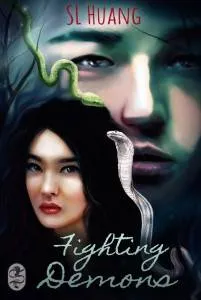
Between Worlds: Finding Home in Fantasy
I understand that International Women’s Day is so named in order to celebrate women all over the world, but recently it’s become a day to ponder the “international” side of my identity. As an Indian woman who’s lived in India for a mere seven years, the migrant experience is certainly the one I can relate to the most. Even before I knew the existence of novels on migration—some of which I’d later studied and found objectively interesting, but subjectively Not For Me—I knew there was something about fantasy that spoke to my own experiences. Sometimes it’s a letter that lures you away and sometimes it’s a job offer one’s parent can’t refuse; either way, you must begin to redefine “home.”
Fantasies, the ones that allow heroines to move between two worlds, are an international Indian girl’s best friends. Or, at least, they are for this girl. The comfort and company, however, brought with it quite a few questions. For example, Hermione’s growing confidence in the magical world was interesting to read, but I always wondered what her summer holidays were like. Was she surprised at how much she missed the wizarding world? Sad at how little she thought of her muggle life while at school? Happy to rediscover the pleasures of being back home with her parents, her relatives, and her childhood friends? Annoyed at having to constantly shuttle between two worlds? It couldn’t have been easy, feeling like you don’t fit in completely in either world. Between India, Saudi Arabia, Singapore, and Canada, I certainly felt like I wasn’t Indian enough. My migrant experience doesn’t even have the decency to follow my nationality with a hyphen. Instead, I’m “Indian”, followed by “???”, and an ocean of unease. In the interest of staying afloat, I forced myself to forget my questions for Hermione.
 Of course, I couldn’t ignore them forever and I have S. L. Huang’s fantastic short story Fighting Demons to thank for that. Fighting Demons follows Xiao Hong’s journey from the land of her birth to her mother’s homeland. There Xiao Hong meets people who look at her as one of their own, when the truth of the matter is that Xiao Hong feels like a complete stranger:
Of course, I couldn’t ignore them forever and I have S. L. Huang’s fantastic short story Fighting Demons to thank for that. Fighting Demons follows Xiao Hong’s journey from the land of her birth to her mother’s homeland. There Xiao Hong meets people who look at her as one of their own, when the truth of the matter is that Xiao Hong feels like a complete stranger:
“Meng Jiao might have spoken my language, but he was as alien as everyone else in this land … He was insane. His culture was insane. It made me want to find my own way even more, the realization that I did not want to be like him.”
It is a harsh statement and, to be clear, an unfair judgement. It is also, I admit with no small amount of mortification, close to something I myself once thought. Huang is one of the few authors who, through the lens of fantasy, explores the nuances of being from one land while belonging to another, and how this duality can often leave you feeling trapped and resentful.
 It wasn’t until I met Jess, the protagonist of Kate Elliott’s Court of Fives, that I made my peace with going through life always asking questions, and carrying answers that never stayed the same. Jess resides between two lives: one where her father’s race and position afford her, in the privacy of her home, the privileges of a noblewoman; another where her mother’s race and position affects her social standing outside of her home. Her identity as a woman, meanwhile, affects her no matter which place she visits. When her family is torn apart, Jess works a job that she loves for people she is unsure about. Jess’ story reflects so many aspects of migration. The lack of any real choice in the matter of leaving home, for one. The way that some aspects of your identity grant you privileges in one world, but are disadvantages in a different world, for another. Jess’ journey is an excellent reflection of what it’s like to stand with your feet planted on either side of criss-crossing, dividing lines.
It wasn’t until I met Jess, the protagonist of Kate Elliott’s Court of Fives, that I made my peace with going through life always asking questions, and carrying answers that never stayed the same. Jess resides between two lives: one where her father’s race and position afford her, in the privacy of her home, the privileges of a noblewoman; another where her mother’s race and position affects her social standing outside of her home. Her identity as a woman, meanwhile, affects her no matter which place she visits. When her family is torn apart, Jess works a job that she loves for people she is unsure about. Jess’ story reflects so many aspects of migration. The lack of any real choice in the matter of leaving home, for one. The way that some aspects of your identity grant you privileges in one world, but are disadvantages in a different world, for another. Jess’ journey is an excellent reflection of what it’s like to stand with your feet planted on either side of criss-crossing, dividing lines.
And since Court of Fives is an ongoing series I’m excited to see how both Jess (and myself) experience the future. I’m excited by the idea that these uneasy realizations and uncomfortable in-betweens—while important within the scope of their respective stories—do not comprise the entirety of the characters’ journeys. Everything that Hermione accomplishes in her life, being a muggle-born witch, matters to me. It matters to me how Xiao Hong acts once she figures out that she belongs in both places, or no place, or all places. It matters what Jess does next, because of and/or in spite of her background. It matters to me that stories about migrating between worlds acknowledge happiness and hope, alongside sacrifice—no matter where their characters wander off to next.
- The Women in Science We Don’t Write About
- Terry Tempest Williams on Women and Books
- Feminist-Friendly Comic Books
- Lauren Beukes On Writers and Their Cats
- Fatima Mernissi, Morocco’s Feminist Icon
- Sonali Dev on Why She Writes The Heroines She Writes
- All Around the World: Women Writers from Every Continent
- On Worldviews and Reading Widely
- 50 of the Best Heroines from Middle Grade Books



